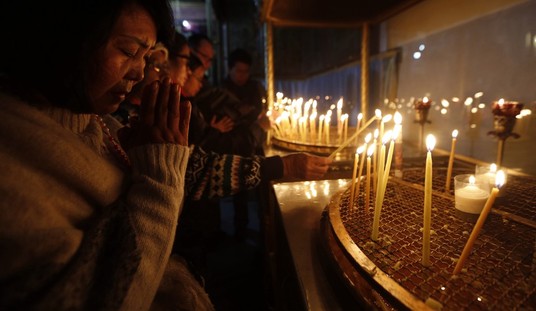Now with an update.
Good news or bad news? The video below shows how insect-like robots of the near future will carry out surveillance and attack roles. Technology is creating revolutionary ways to engage small groups. The progressive reduction in the ‘signature’ of war will raise questions that have never been faced before. First of all, what will it mean to be at war when conflicts may not necessarily involve armies, declarations of belligerency or surrenders? Second, what happens if warfare becomes so targeted that it can essentially be fought without civilians noticing it? Will it lead to endless, chronic warfare without a definite beginning or end? Third, will information dominance become the “seapower” of the future? The enabling mode of transport upon which world domination depends?
And lastly who will control these tremendously lethal forces? Who will guard the guardians?
[youtube u7d2fBkxjTk]
Open thread.
What happens when the fly can swat you?
[youtube 5rbUH_iVjYw]
Update: My greatest fear about “warfare” which can be waged against enemies on an individual basis is this. It will be. Any belligerency which ultimately depends on information will by necessity, be accompanied by equal amounts of disinformation. Traditional warfare was marked, theoretically at least, by a divide between a moment of literal truth and the fog of war. Formerly, when a state crossed the boundary from peace into war it left the open air and sunlit fields of clear causes for the dark world of blood and mud. But on the near side of the river, it stood momentarily in the light of day. Warfare at it’s outset used to be about definite things: national survival, repelling an invader, liberating a continent from the scourge of Nazism or some other totalitarianism. Sub-clinical warfare will be about things we can never understand. In an info-centric combat environment the truth will be so precious it will be accompanied, and probably eventually forgotten, amid a bodyguard of lies.
Republics like the United States were implicitly designed to fight wars with a public clarity of causes and private murkiness of means. Congress declared War and the Executive waged it. When war is abolished, or is rather transformed into the counterfeit of peace by a blurring of the lines between belligerence and law enforcement, the consequence is also the abolition of the clarity of public causes. There will be no more crusades, no more “wars on terror”, no more great causes. All we will have is a prevention of man-made disasters, formerly known as terrorism; all that will be left is police action. But beware! It will be police actions the likes of which the world has never seen, at least potentially. What will this mean institutionally, what will it imply for a democracy? The role of Congress may become vestigial. What need will there be to declare war when actual violence occurs at such a low level of conflict that it never even makes the inside pages of newspapers, assuming newspapers still exist in twenty years’ time? Everything will be left to the Executive. To the Attorney General and the CIA. No more war. Just a Global Justice Program. But can democracy survive such a program?
That scares me. I think war is too important to lose its awfulness. If conflict is nickel and dimed to the point where it ceases to be noticed by the public then society will not have entered a time when the lion lies down by the lamb, but rather have wandered into a dark era when the wolves all bay in the darkness, but only with the sound turned off. We need to keep the sound turned on or we will mislay our freedoms in the silence of the lambs.










Join the conversation as a VIP Member